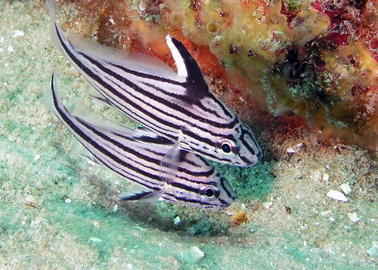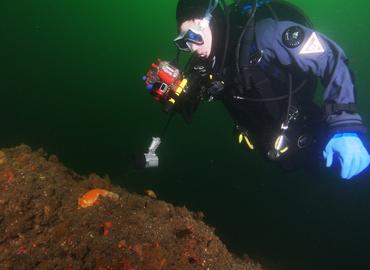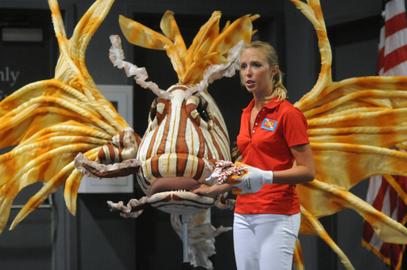REEF is proud to partner with over 130 dive shops, dive clubs, individuals, and other organizations as REEF Field Stations.
Have you joined a Fishinar yet? These popular online REEF webinar training sessions provide fishie fun in the comfort of your own home. Fishinars are free, and open to all REEF members. You need to register for each session you want to attend. No special software is required, just a web browser. Upcoming sessions include:
Lesser Known Fish of Cozumel - October 17
Feel the Beat! The Top 12 Drums & Croakers of the Caribbean - October 29
A few weeks ago, the REEF Volunteer Fish Survey Project database topped 175,000 surveys! We are exicted and proud to have reached this milestone. Together with our 14,000+ volunteers, we have created the largest fish sightings database in the world! This vital dataset is used by marine scientists, researchers, and government agencies to better understand and protect marine resources. The number of scientific publications, requests for data, and policy decisions resulting from REEF data continue to increase.
REEF members are at the heart of our grassroots marine conservation programs. Over 50,000 divers, snorkelers, students, and armchair naturalists stand behind our mission.
This month we highlight Nick Brown. A US Pacific Northwest native, Nick is currently living in St. Kitts. Nick has been a REEF member since 2004 and has since conducted 138 surveys. He is a member of the PAC Advanced Assessment Team. Here's what Nick had to say about REEF:
How did you first volunteer with REEF?
After several years of planning and collaborating with local marine scientists and divers, REEF has expanded the Volunteer Fish Survey Project into another region: the South Atlantic States (SAS). Recreational and scientific divers in North Carolina, South Carolina, and Georgia now have survey materials specific to the local ecosystem, including waterproof color ID cards, waterproof survey paper, teaching curriculum, data entry, and online data summaries.
As part of our efforts to address the lionfish invasion to the western Atlantic, REEF received a grant from the US Fish and Wildlife Service Aquatic Invasive Species Program to organize and lead lionfish workshops throughout the Southeast United States. Between August and October, REEF staff Keri Kenning and Lad Akins will be traveling to more than a dozen coastal communities to present information on the lionfish invasion and hands-on demonstrations on collecting and handling.
The authors describe the behavioral interactions of piscivorous mid-water and demersal fishes at subtropical live-bottom reefs off the coast of Georgia and off the west coast of Florida in the northeast Gulf of Mexico. The observations are used to construct a topological behavior web of the interactions of mid-water and demersal piscivores, their prey, and those associated species that modify predator-prey interactions. Results show that inter-specific behavioral interactions are common attributes of piscivores in these reef fish communities.
Despite being the world’s largest rays and providing significant revenue through dive tourism, little is known about the population status, exploitation, and trade volume of the Mobulidae (mobulids; Manta and Mobula spp.). There is anecdotal evidence, however, that mobulid populations are declining, largely due to the recent emergence of a widespread trade for their gill rakers.




